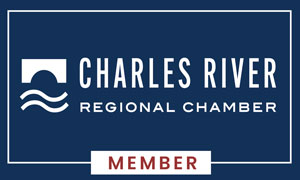How the CARES Act Affects Health Care
On March 27, 2020, Congress passed the Coronavirus Aid, Relief, and Economic Security (CARES) Act to provide $2.2. trillion in federal funding in response to the COVID-19 global pandemic. These funds are available to small businesses, individuals, gig and freelance workers, retail and restaurants, hospitals and public health organizations, as well as large corporations and educational organizations. While the majority of the relief is to individuals and businesses, a portion of these funds are directed towards expansion of health care delivery in response to the crisis. This Act follows two other pieces of legislation, The Families First Coronavirus Response Act (FFCRA) and an emergency funding bill.
The CARES Act directs $100B to eligible health care providers. Eligible health care providers are “public entities, Medicare or Medicaid enrolled suppliers and providers, and such for-profit entities and not-for-profit entities … as the Secretary may specify … that provide diagnoses, testing, or care for individuals with possible or actual cases of COVID-19.” The Act doesn’t specify how or when the funds will be disbursed except that it will be through “grants or other mechanisms” and “the most efficient payment systems practicable to provide emergency payment.”
The Act also expands health insurance coverage to cover not only FDA approved COVID-19 testing but also testing that is pending FDA approval for which the developer intends to apply for FDA approval in a reasonable amount of time, or that is otherwise approved by HHS. This expanded coverage applies to private insurance plans and must be administered with no cost sharing (copayments, coinsurance, or deductibles), as well as no prior authorization or medical management requirements. COVID-19 vaccines must also be covered as EHB. Providers must disclose the cash price of any diagnostic COVID-19 testing on their websites or be subject to civil money penalties. Health plans must cover COVID-19 preventive services recommended by the US Preventive Services Task Force or CDC’s Advisory Committee on Immunization Practices.
Medicare recipients must receive COVID-19 testing in Medicare Part B with no cost sharing and Medicare prescription drug plans and Part D must allow 90-day supplies of prescription drugs during the declared emergency period. Uninsured individuals can receive COVID-19 testing and related services at no cost under any state Medicaid program that elects to offer the enrollment option.
High deductible plans with health savings accounts can cover telehealth services with no deductible. Medicare beneficiaries no longer have to have a prior patient relationship to be treated through telehealth. Federally qualified health centers and rural health clinics can be used for telehealth consultations.
The Office for Civil Rights (OCR) at HHS will not impose penalties for noncompliance with the regulatory requirements under HIPAA Rules against covered health care providers in connection with the good faith provision of telehealth during the COVID-19 nationwide public health emergency. Covered health providers that wish to utilize telehealth services may use any non-public facing remote communication product available to communicate with patients, even if the product does not technically comply with HIPAA fully. Providers may not use public facing systems, however. This applies only during the COVID-19 public health emergency period. Providers must use good faith efforts to secure communication as much as possible, and this relaxation of penalties applies whether the telehealth consultation is used for the treatment of COVID-19 or any other illness or ailment.









